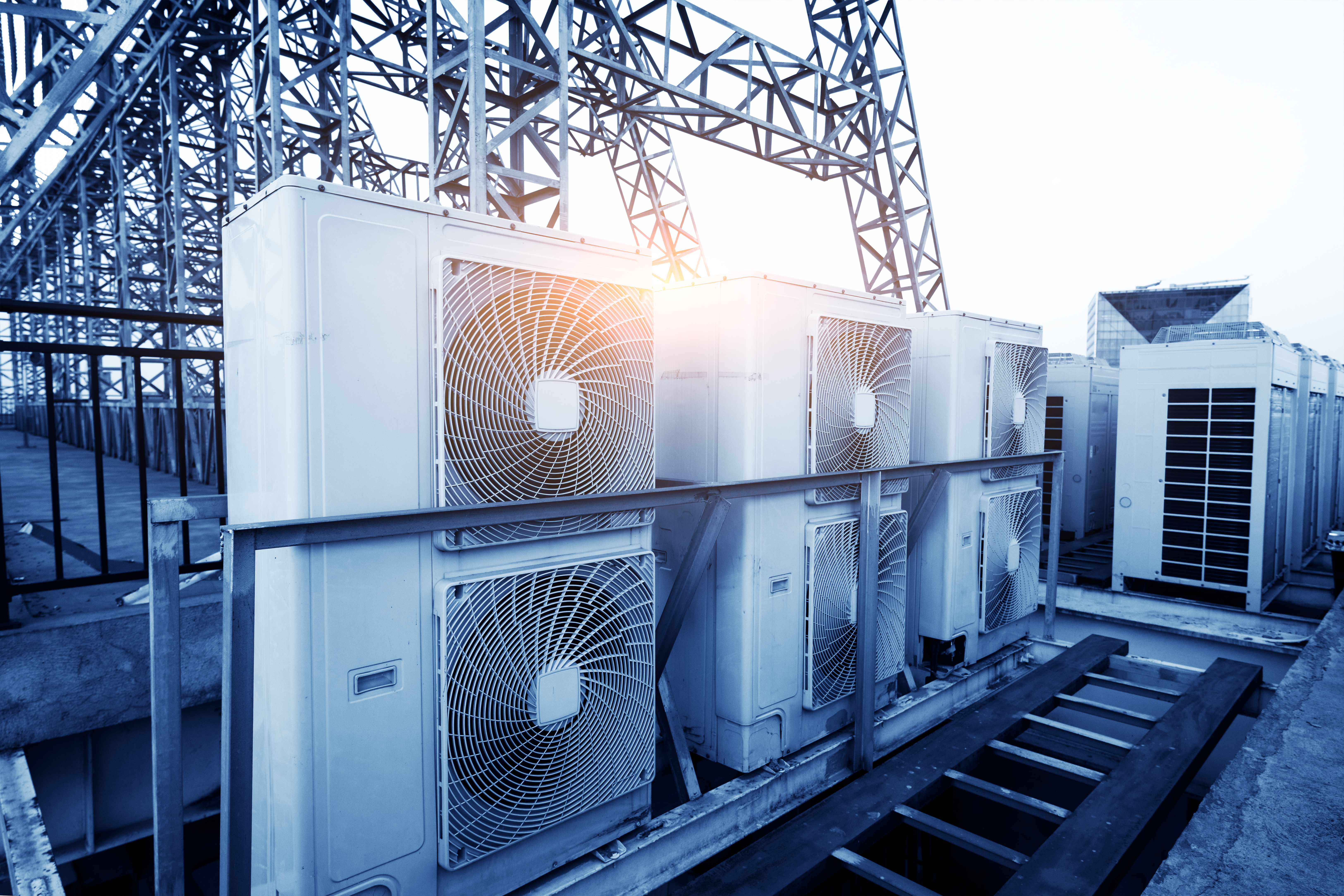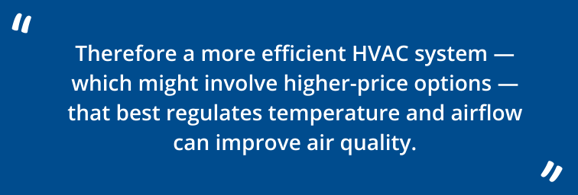How Much Does a New Commercial HVAC System Cost?
November 5, 2021

Before You Buy, Know the Factors that Affect Commercial HVAC Equipment Costs
When it comes time to replace your HVAC unit or system and you have not purchased one for a while (or ever), you might wonder, how much do new commercial HVAC systems cost?
The answer depends on the size of the equipment, as well as other factors like brand name, capabilities, and the layout of your building. Labor costs, energy bills, timeline, availability, and your type of business can also play a role. While costs will always depend on a specific building’s needs, learning about what affects HVAC costs can help you make informed decisions and save you money.
Understanding the Cost of Commercial HVAC Systems
What determines the price of HVAC equipment?
The type of HVAC unit installed, brand, labor, building size, and type of business activity, among other factors, all affect average costs for commercial HVAC systems.
1. New Construction versus Retrofitting
Installing HVAC equipment on a new building compared to retrofitting a building can affect the price. Existing construction and retrofitting can often improve overall system efficiency and performance, but the extent and difficulty of labor for HVAC technicians could vary based on building and construction details. With existing buildings and retrofits, existing piping and ducts often won’t have to be replaced or redesigned, reducing costs.
2. Type of Unit
Commercial heating and air conditioner systems use varying technologies to manage airflow and temperature. A variable air volume system adjusts airflow based on current temperature for responsive, efficient operation. A constant air volume system uses an indoor air handler with an outdoor central air conditioner compressor best suited for small commercial buildings. A variable refrigerant volume system uses piping to circulate coolant to individual rooms. Each system has different costs.
3. Brand
HVAC companies sometimes partner with specific equipment manufacturers. Commercial HVAC providers tend to diversify their equipment, however, to meet the needs of both light commercial facilities and large, multi-unit structures. Sourcing the best equipment for the job, regardless of brand, is a priority for any HVAC provider.
4. Labor and HVAC Installation
HVAC installation costs and labor costs vary based on the type of commercial HVAC system installed and its installation difficulty. For example, a historic building with varied or obtrusive architectural elements could make for a more difficult installation.
-2.png?width=756&name=Copy%20of%20Avio%20Highlighted%20Template%20(1)-2.png)
5. Building Size
A larger building will have different heating and cooling needs than a smaller building. Bigger is not always better in terms of your AC unit and heating system. Your HVAC equipment should be proportionate to your needs. Paying more for more or larger units (or less for fewer, smaller units) is worth it to adequately regulate temperature. A too-small unit drives up energy costs with constant use, while a too-large HVAC unit often cycles too quickly, starting and stopping before fully cooling a room.
6. Type of Business Activity
An office building will have different heating and cooling needs compared to a manufacturing facility. The average occupancy of buildings and rooms and type of equipment being used will affect the HVAC unit needed, and therefore the price. A facility that works with high-heat equipment, would have different needs than businesses primarily employing office workers
7. Automation and Controls
Smart thermostats, digital controls, and Building Automation Systems can capture data and adjust temperatures and conditions automatically typically decreasing energy costs. Such systems can root out areas of energy waste and indicate preventive maintenance needs. The initial price for these systems can partially be offset by energy and cost savings.
Frequently Asked Questions about Commercial HVAC System Costs
Does the cost of my unit have an impact on air quality?
Indoor air quality can be affected by environmental factors such as pollutants, allergens, and even microorganisms in the air. Government agencies such as the Environmental Protection Agency and other regulatory bodies have created standards for maintaining healthy indoor air quality. Ventilation and distribution of air to building spaces also affect indoor air quality.

Will a more expensive unit make my building more energy efficient?
A more energy-efficient HVAC unit and one with a good SEER rating could be pricer than other units and heating and cooling systems. The Energy Star label signifies a product that meets government-backed energy efficiency requirements. However, it’s important to remember that reduced energy costs often offset the price of more expensive HVAC equipment. More efficient equipment costs less to run, saving energy and money in the long term, which is something that United Mechanical emphasizes to its customers.
Does the type of HVAC unit affect the price?
Different types of HVAC units come at different prices. The options vary based on different methods for managing airflow and temperature and also size and performance requirements. Different buildings and types of business need different types of commercial HVAC equipment. HVAC technicians, and mechanical engineers. can advise on the type, size, and other characteristics of the unit needed for your building.
Do more expensive units have a longer life expectancy?
The life expectancy of your HVAC unit varies based on its upkeep, usage, quality of initial installation, suitability to building size, and other factors. It’s difficult to say if a more expensive unit will have a longer life expectancy based only on price. Other factors could play a larger role in life expectancy.
How does industry type affect the cost of an HVAC unit?
Different types of industries need different commercial HVAC systems. Industrial and manufacturing facilities have different needs than office buildings. Data centers have different needs than hospitals, and so on. Qualified HVAC technicians, mechanical contractors, and mechanical engineers can best advise on your HVAC needs and on ideal heating and air conditioning units for your building. The size, layout, equipment use, occupancy, and special requirements of your industry and building dictate your commercial HVAC system type.
Count on United Mechanical for Commercial HVAC Services
United Mechanical Services provides top-quality commercial HVAC needs, including installation, repairs, and maintenance services, for Oklahoma businesses. Our expert team consists of honest, reliable, and skilled HVAC contractors, technicians, and other fully certified professionals.
We handle commercial HVAC for companies and facilities large and small. We’re happy to help with your next HVAC system installation, repairs, or upgrade. Contact us for more information or for a quote on our expert services.

